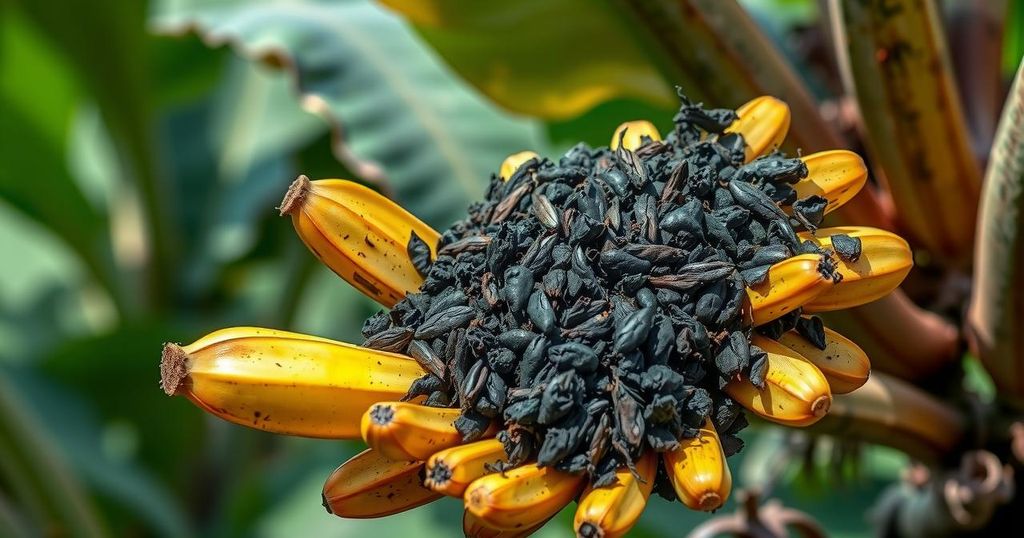Transforming Waste into Biochar: A Sustainable Initiative in Cameroon

Steve Djeutchou is mitigating the environmental impact of charcoal production in Cameroon by creating biochar from banana peels, thereby addressing deforestation and promoting ecological sustainability. His initiative, albeit at a nascent stage, has the potential to positively impact local communities and the environment. Additionally, Steve’s training school equips individuals with renewable energy skills, contributing to a sustainable future.
In Cameroon, Steve Djeutchou is pioneering efforts to produce biochar from organic waste, notably banana peels, as an eco-friendly alternative to traditional charcoal. Given the environmental challenges posed by charcoal production, which contributes to significant deforestation—over 700,000 hectares lost from 2002 to 2020—Steve’s biochar initiative seeks to reduce reliance on tree-based charcoal. His local network estimates a biomass collection potential of around 40 metric tons daily in Yaoundé, yet he currently produces only 3 tons of biochar monthly due to limited resources. In addition to his production efforts, Steve operates a training school aimed at enhancing skills in renewable energy, thereby fostering local capacities in sustainable practices. By addressing charcoal sourcing issues and promoting waste recovery, he aims to create a more sustainable future for Cameroon.
Steve Djeutchou’s biochar business not only offers a cleaner alternative to conventional charcoal but also empowers the community through education and skill development in renewable energy sectors. His vision encompasses broad impacts on environmental sustainability and local economies, as he trains numerous individuals in technical skills essential for the advancement of renewable energy solutions.
Djeutchou emphasizes the need for change in energy consumption habits, particularly in handling pollution associated with traditional charcoal. His efforts denote a necessary shift towards ecological responsibility within the energy sphere, presenting a robust response to the ongoing climate crisis.
Steve’s educational initiatives demonstrate a commitment to empower the next generation through practical knowledge. He nurtures future leaders and innovators who will champion sustainable practices and ecological preservation in Cameroon. His transformative approach underscores the crucial interlink between education, environmental sustainability, and economic development.
The article highlights the increasing environmental threat posed by charcoal production in Cameroon, exacerbating deforestation in a country rich in forest resources. Specifically, Steve Djeutchou’s innovative approach transforms organic waste into biochar—an eco-friendly alternative that not only mitigates deforestation but also serves as a cleaner fuel source. The narrative contextualizes the broader implications of his work in relation to renewable energy and community development, framing it as a necessary step towards a sustainable future amidst the pressing climate crisis.
In conclusion, Steve Djeutchou’s biochar initiative in Cameroon represents a significant stride towards addressing both environmental degradation and energy supply issues. Through his sustainable production of biochar from organic waste and his efforts in educating the community about renewable energy, he is laying the groundwork for a more sustainable and eco-friendly future. His work exemplifies the potential of innovative solutions to combat pressing environmental challenges while fostering local economic empowerment.
Original Source: news.mongabay.com






